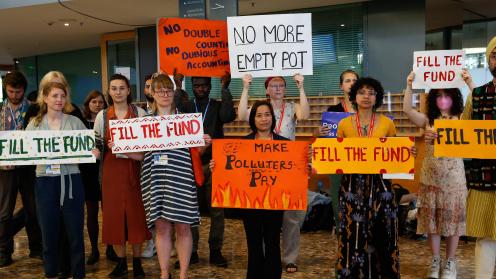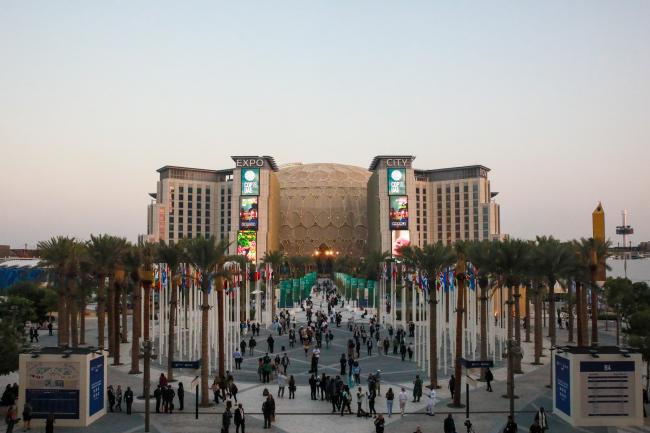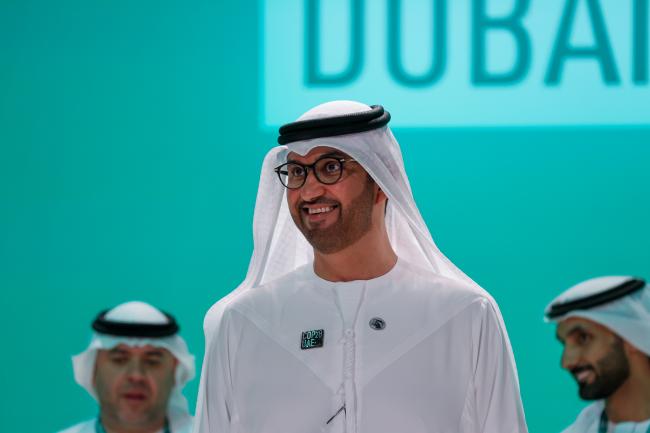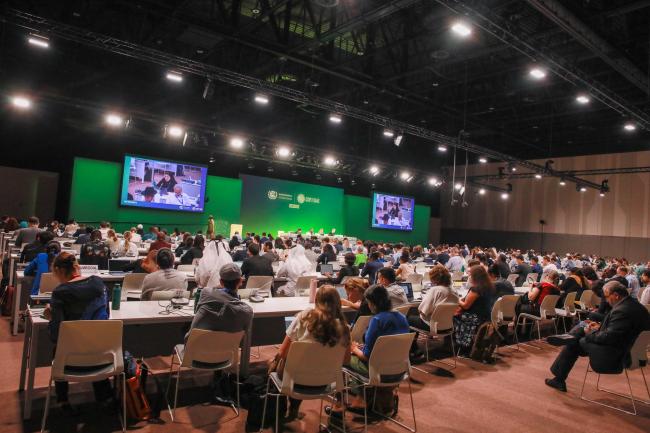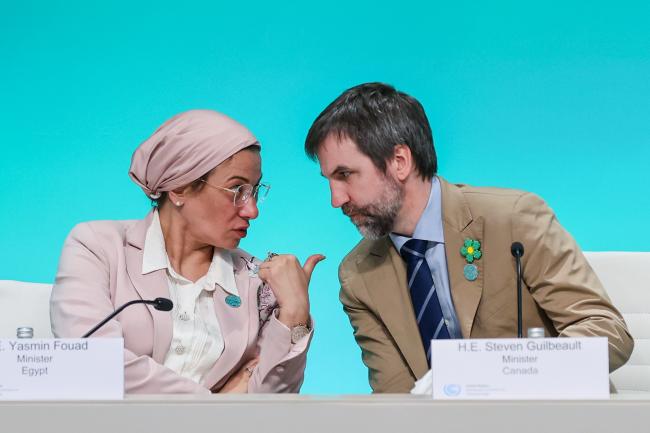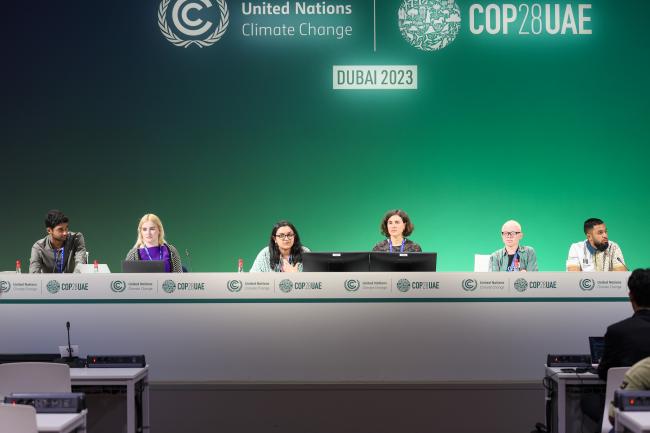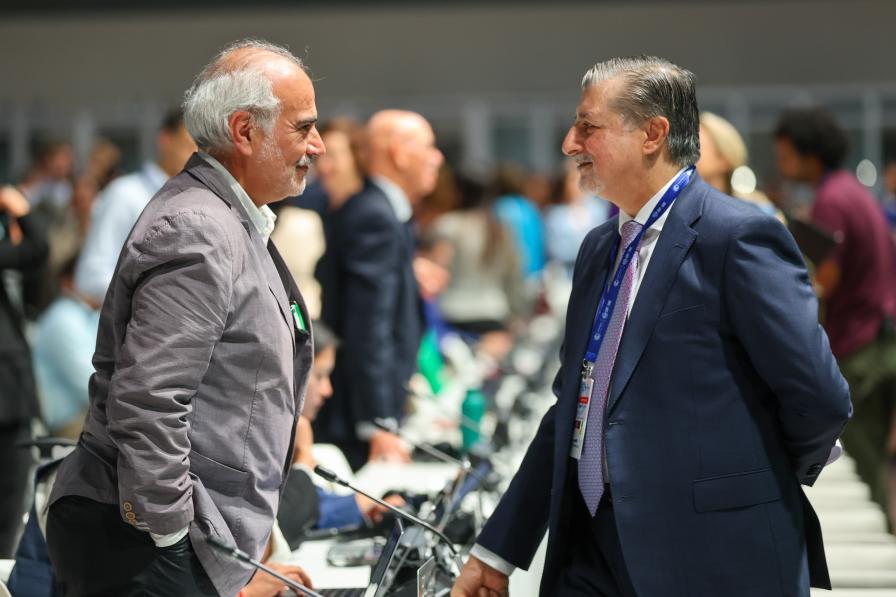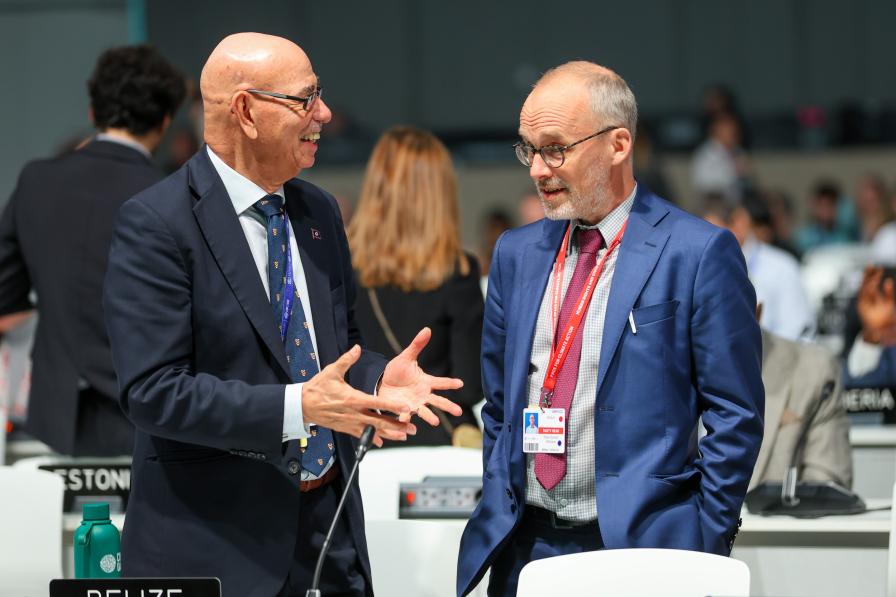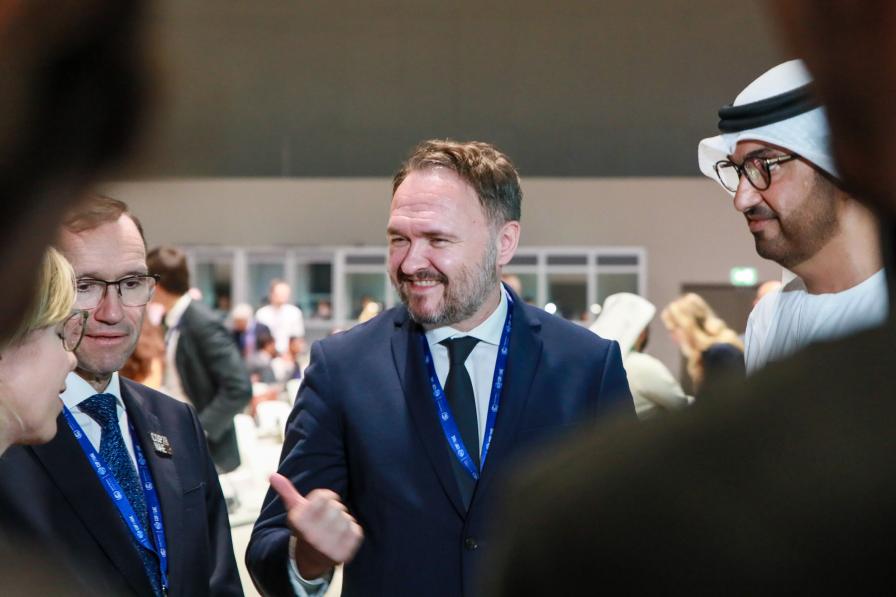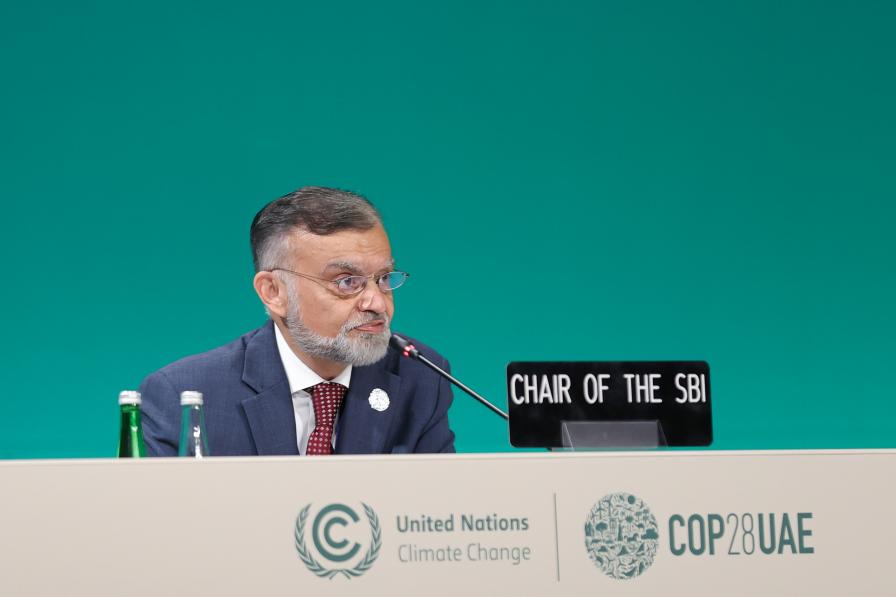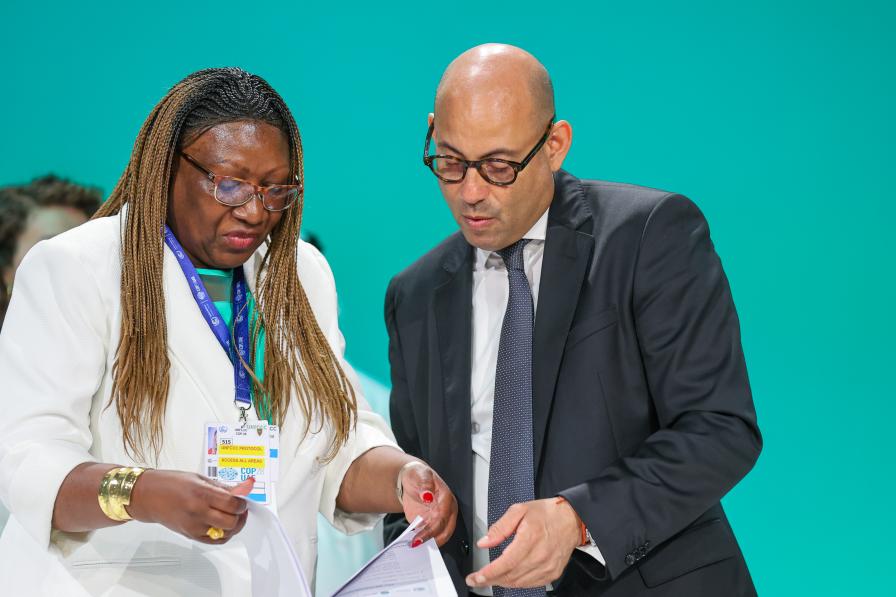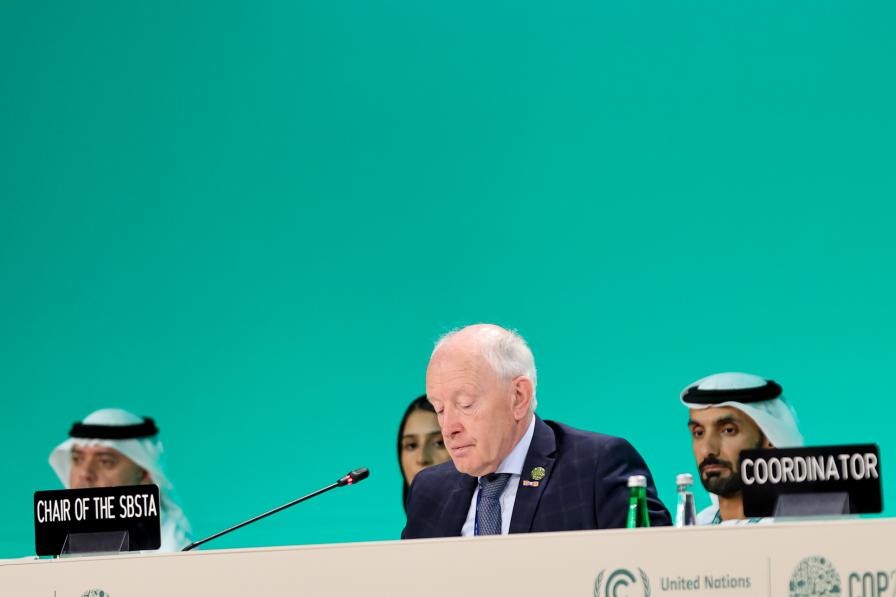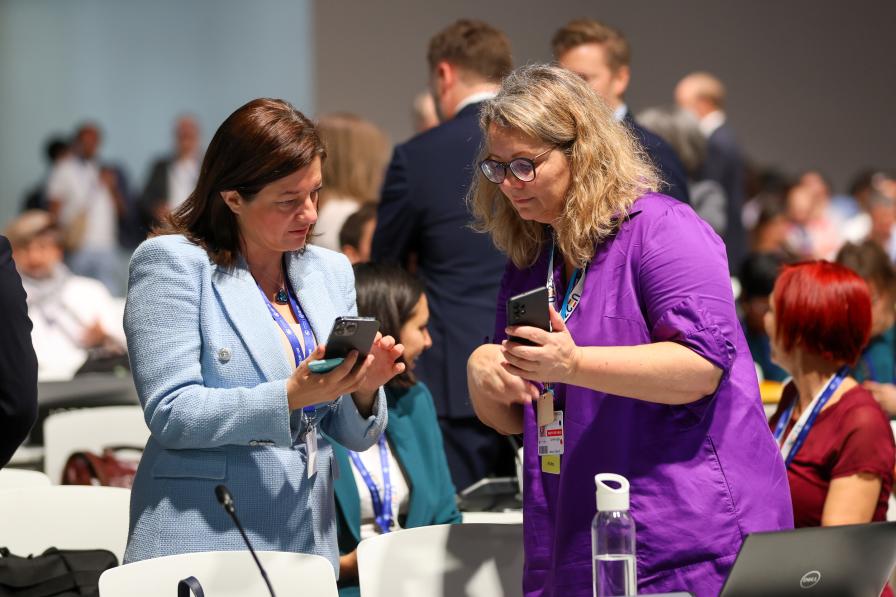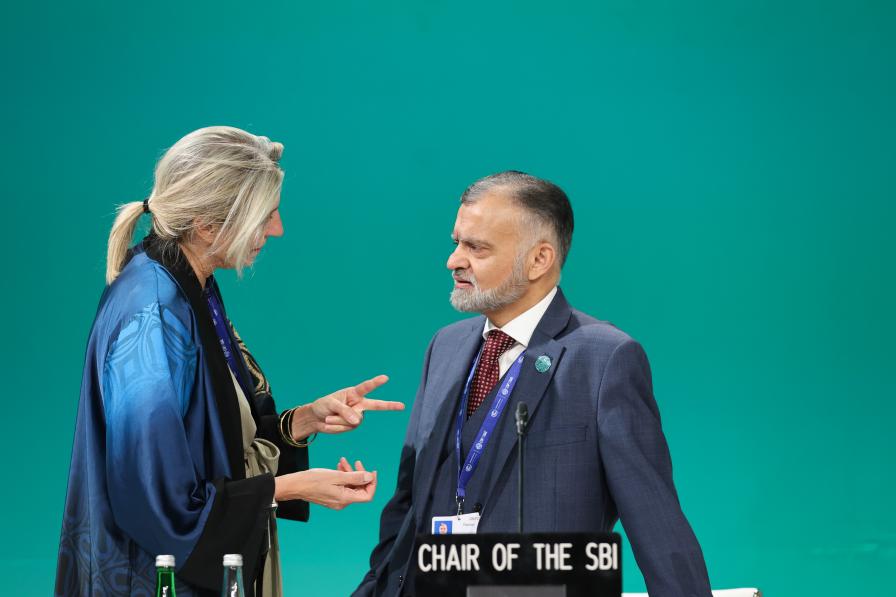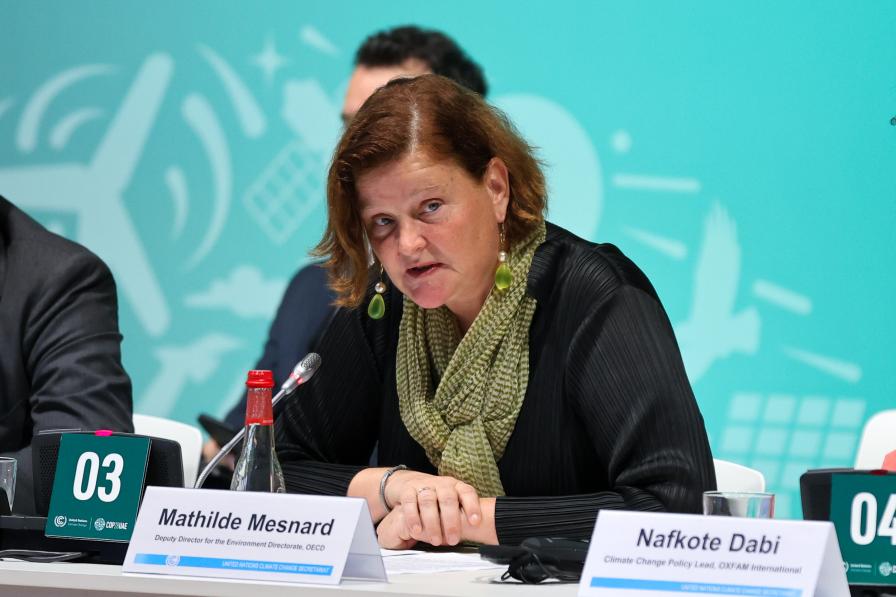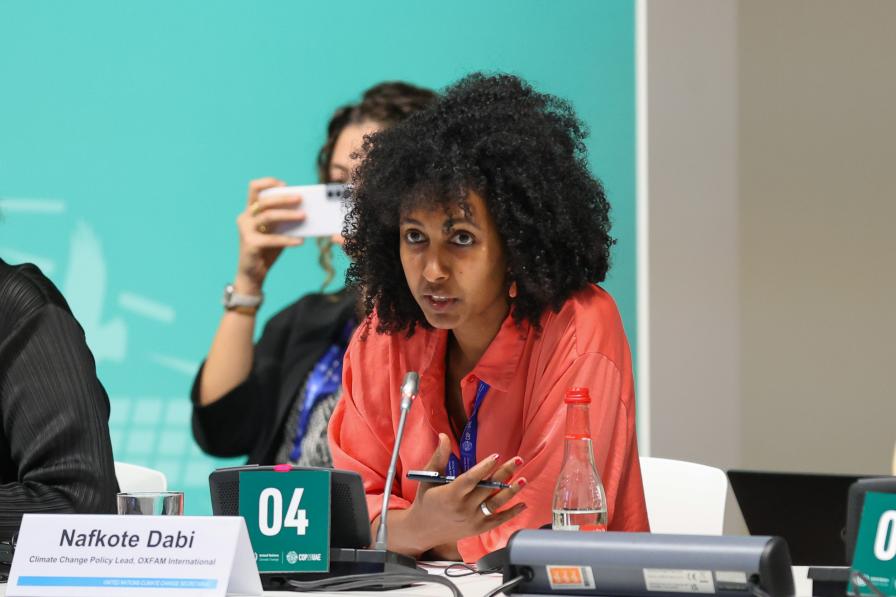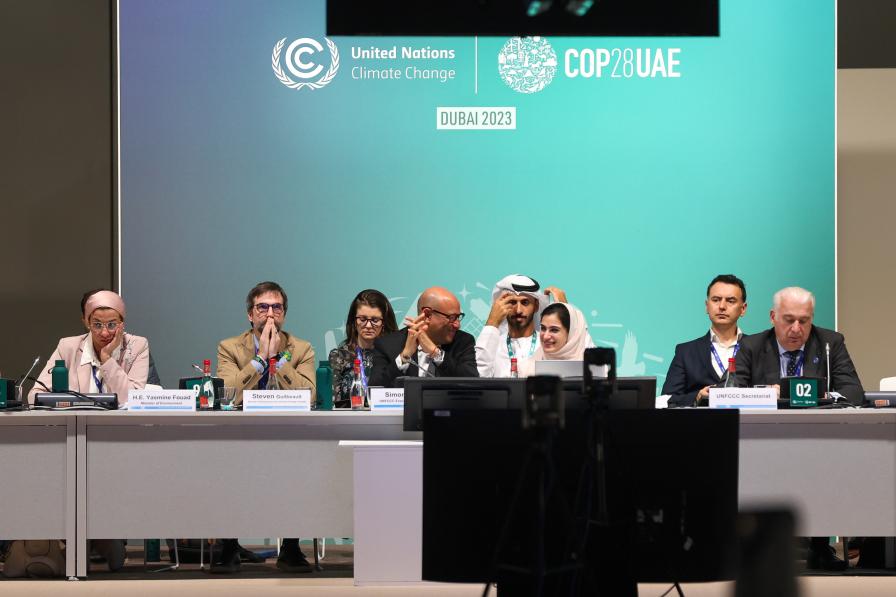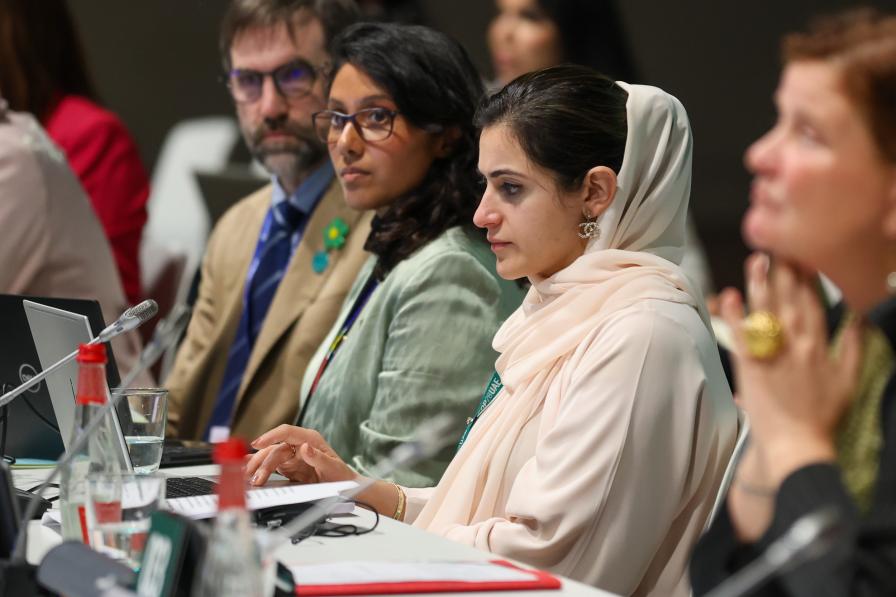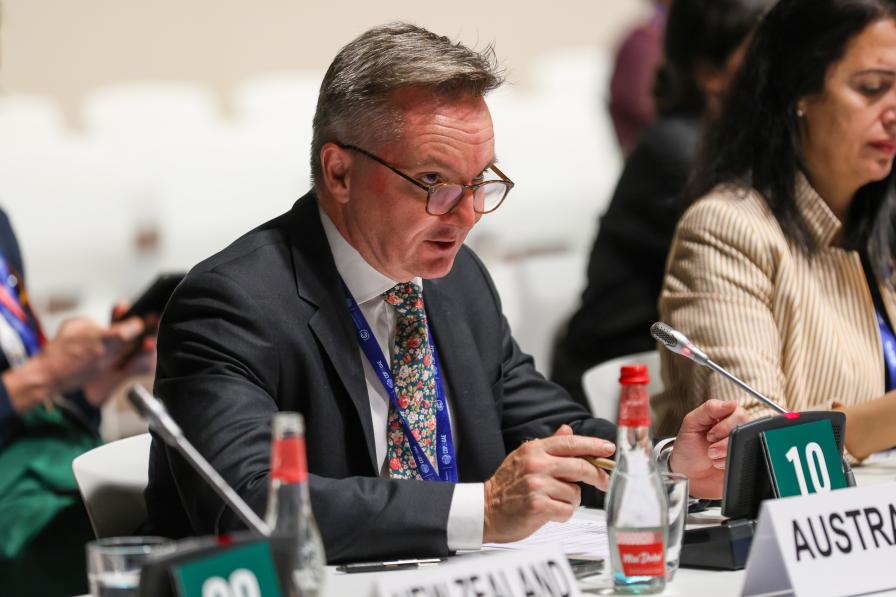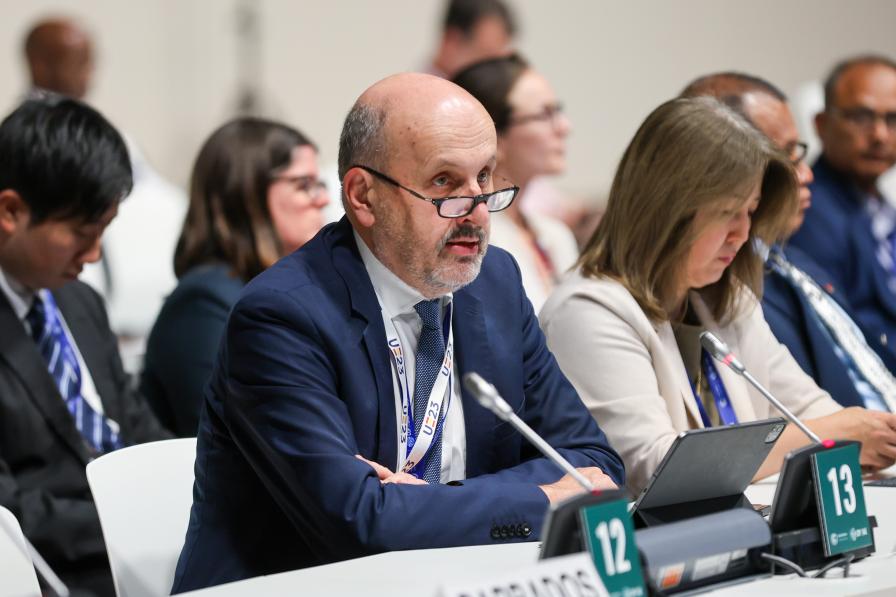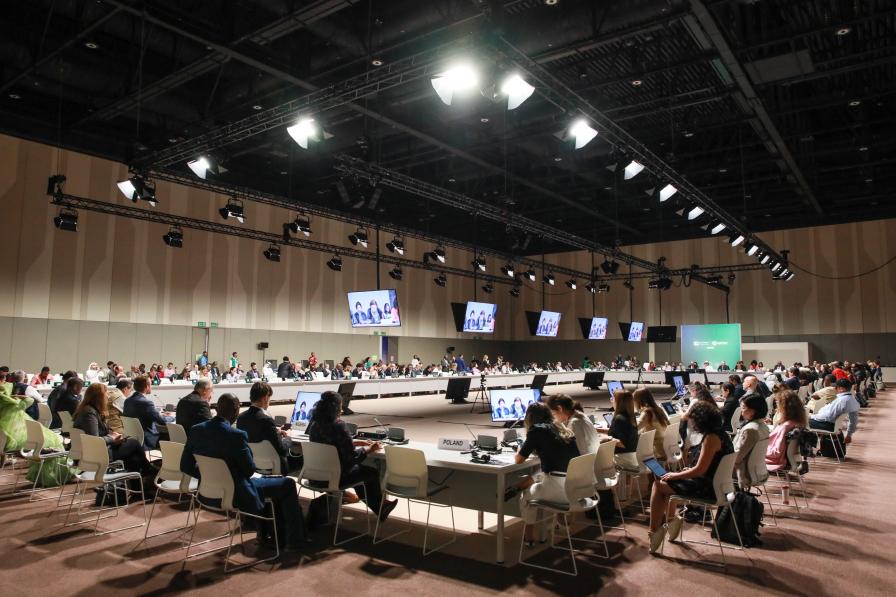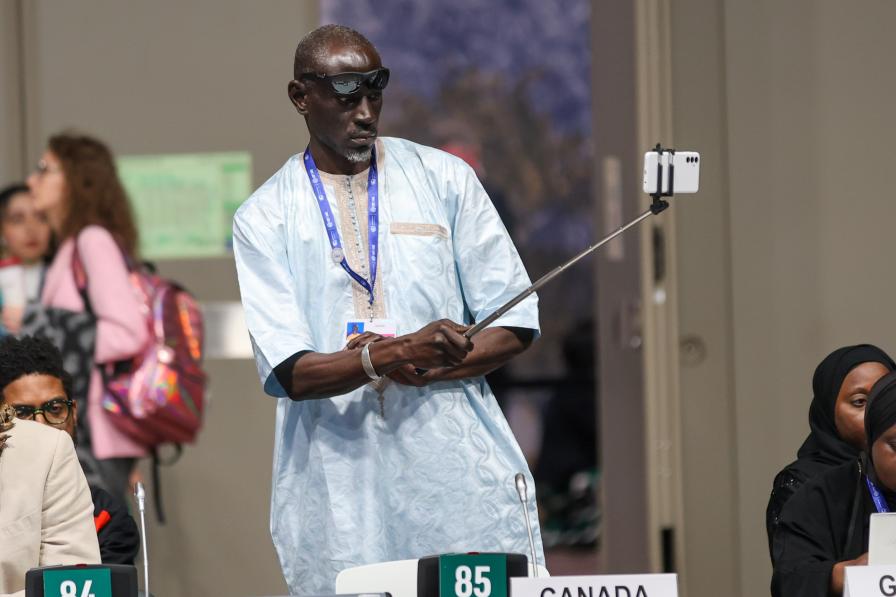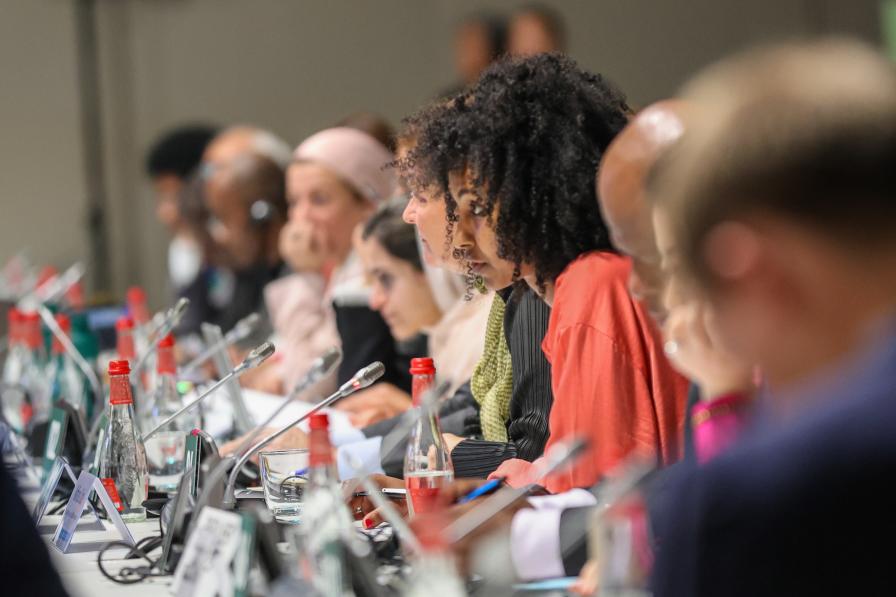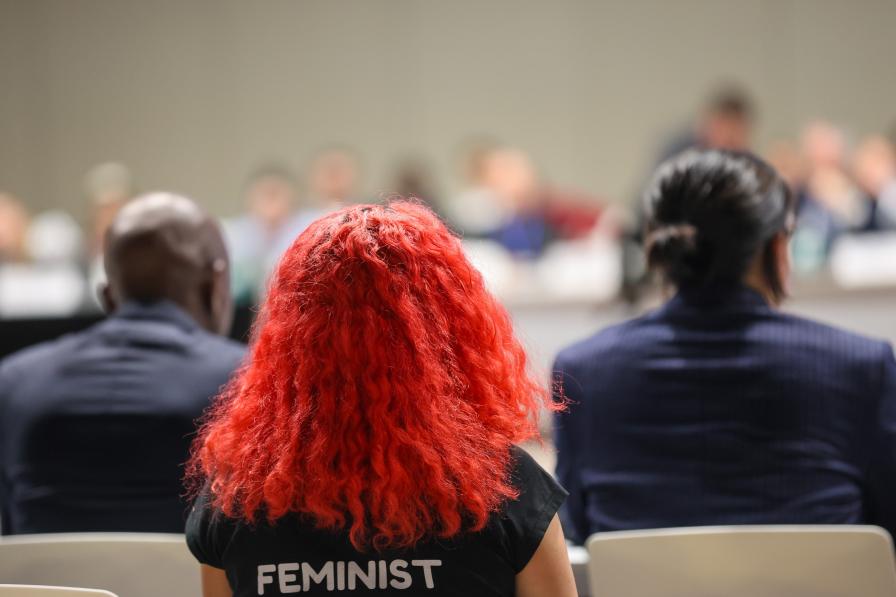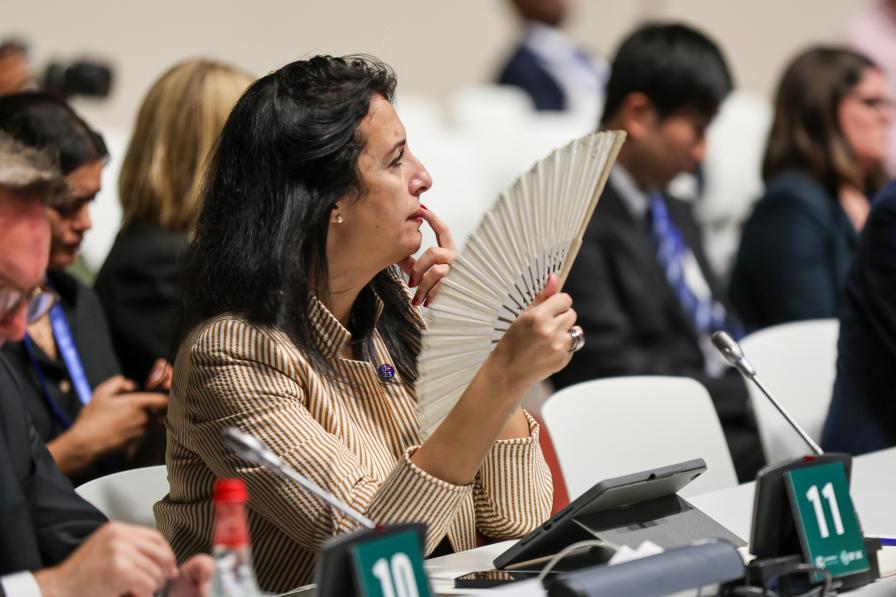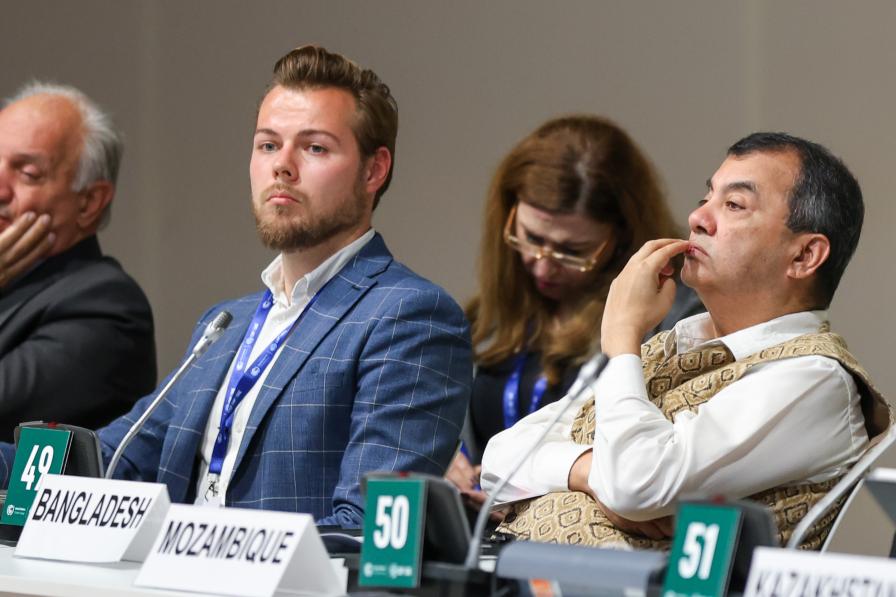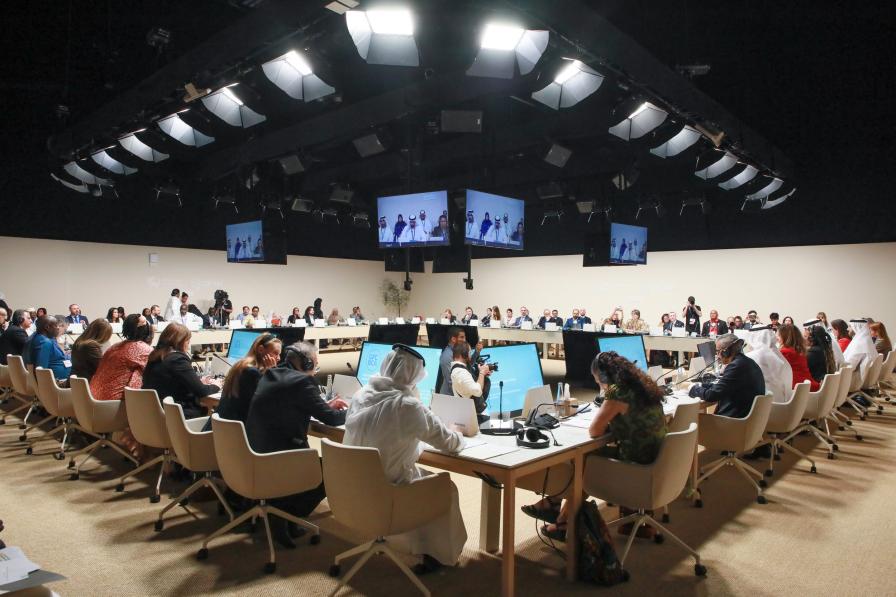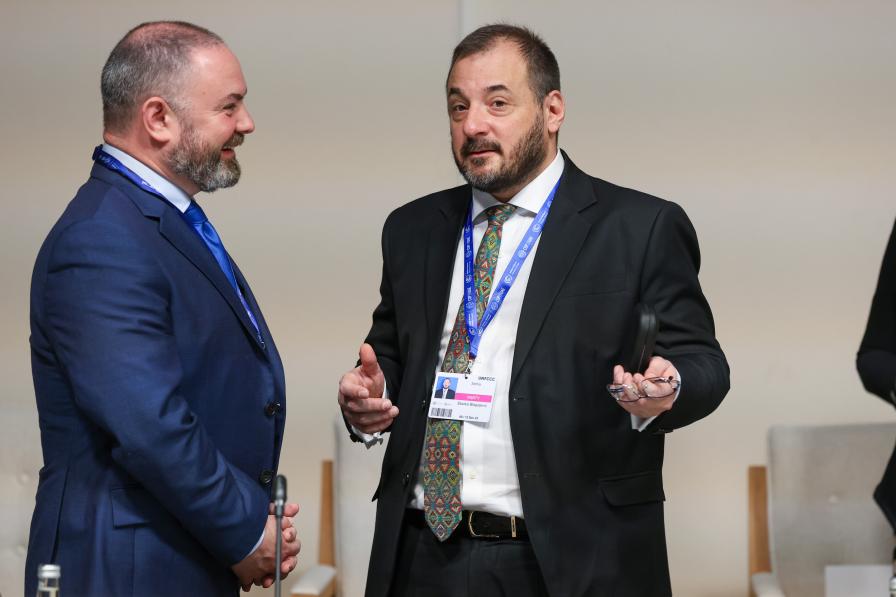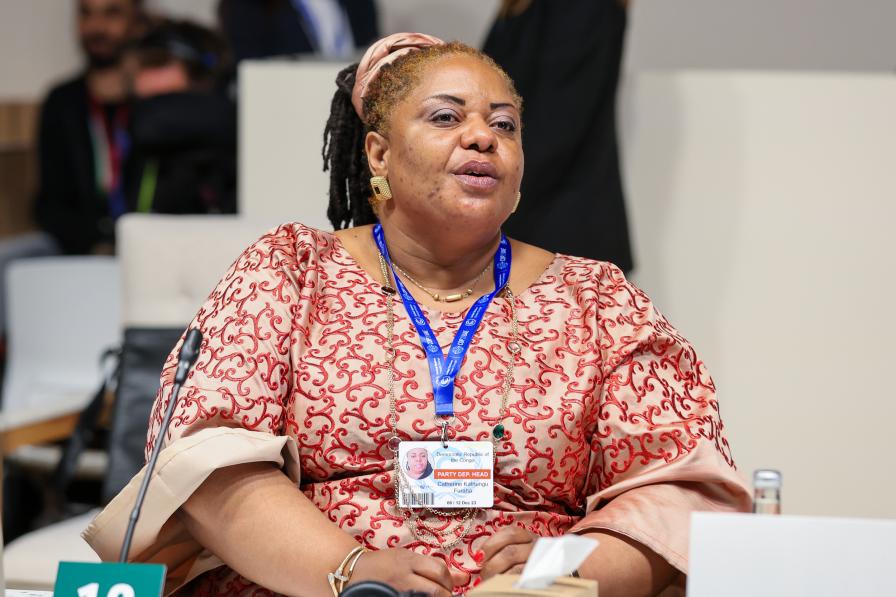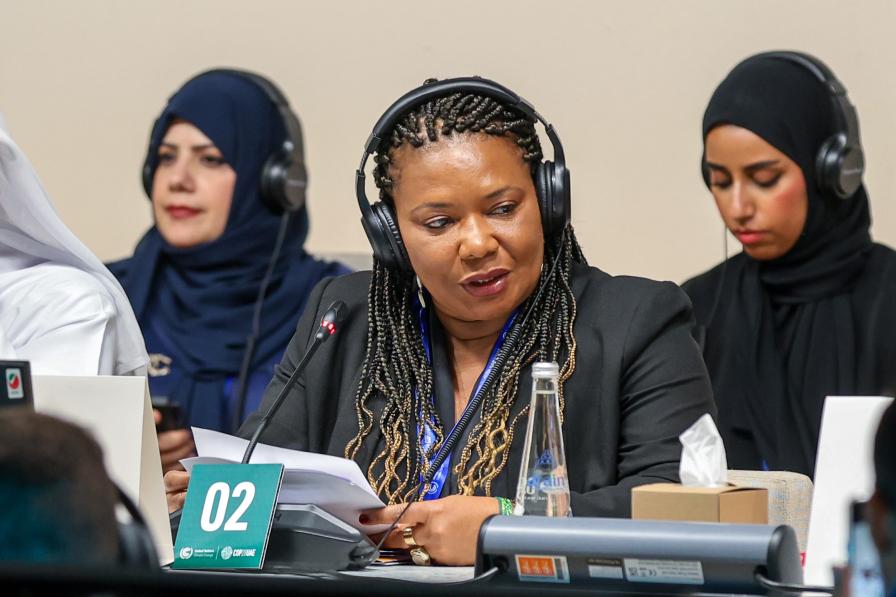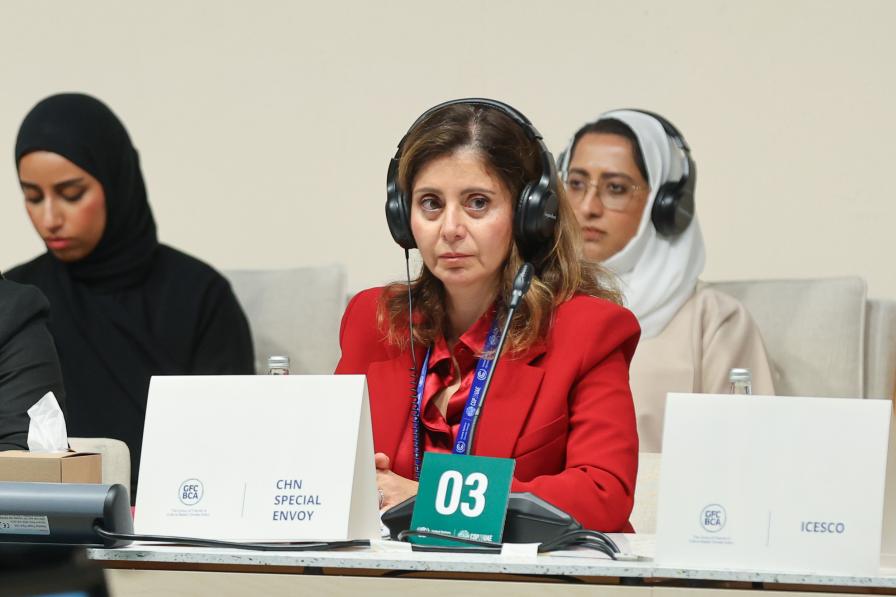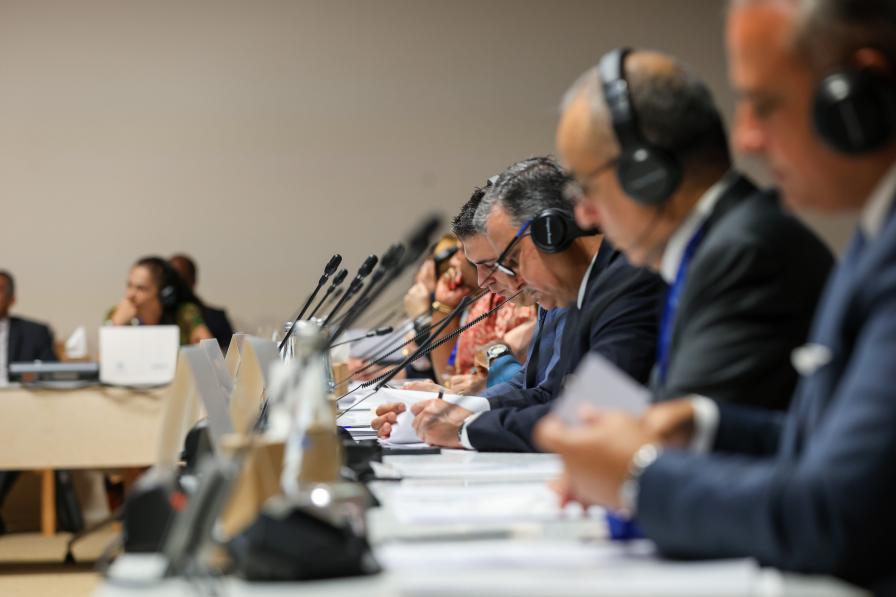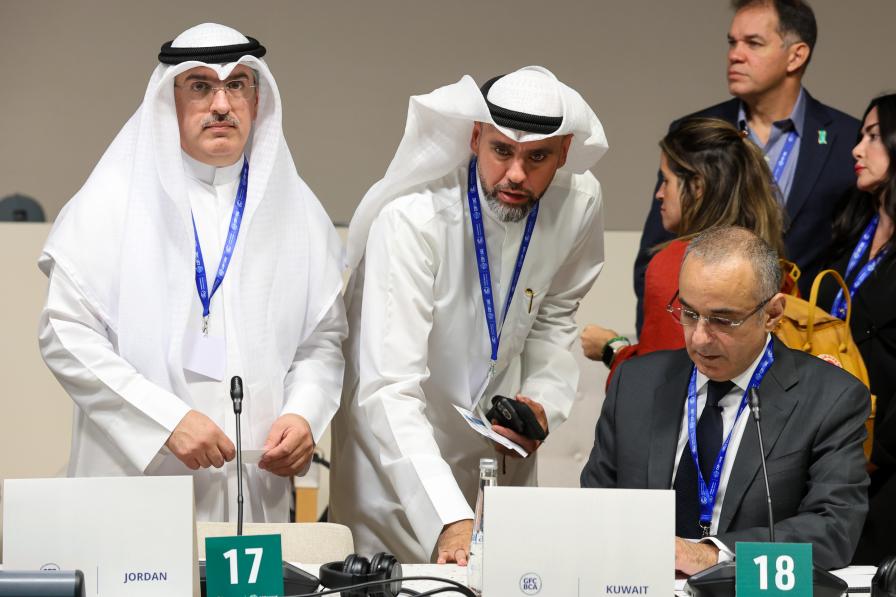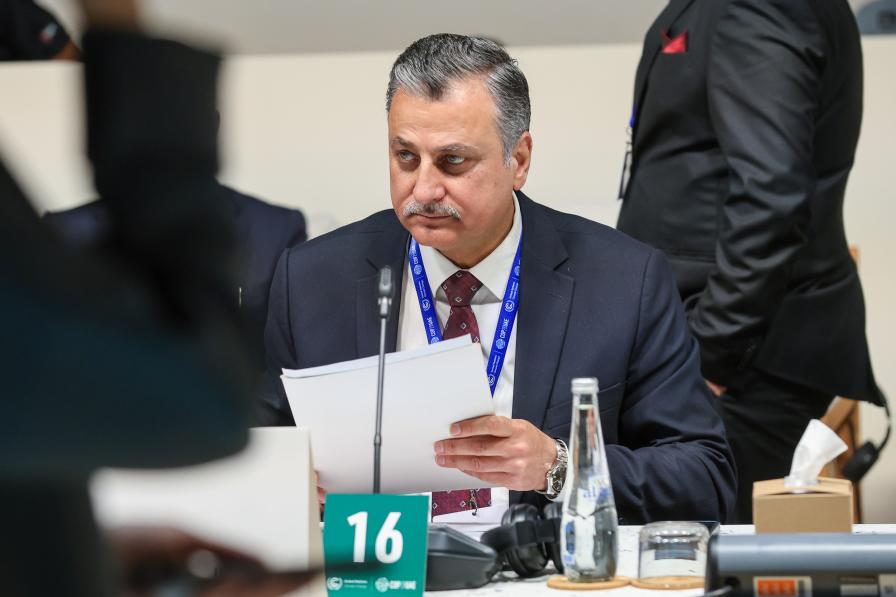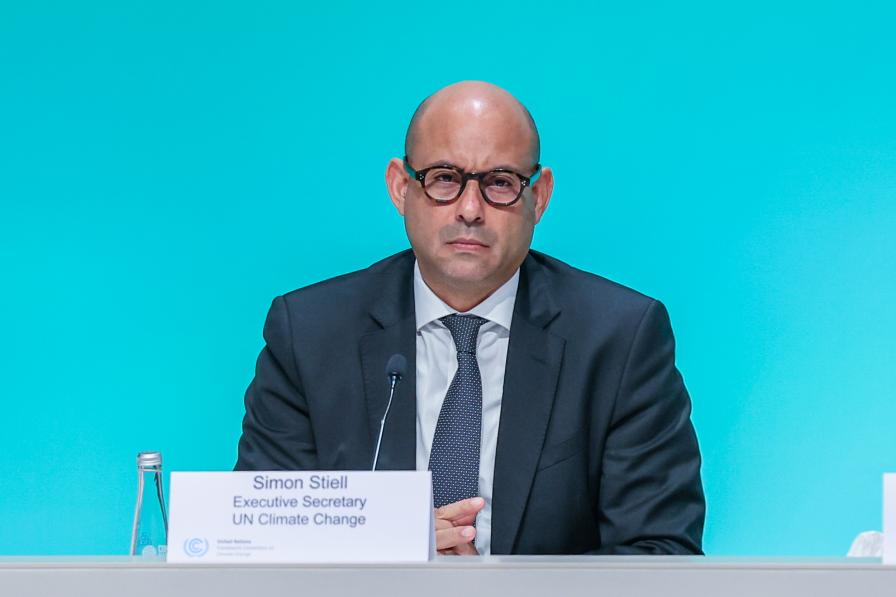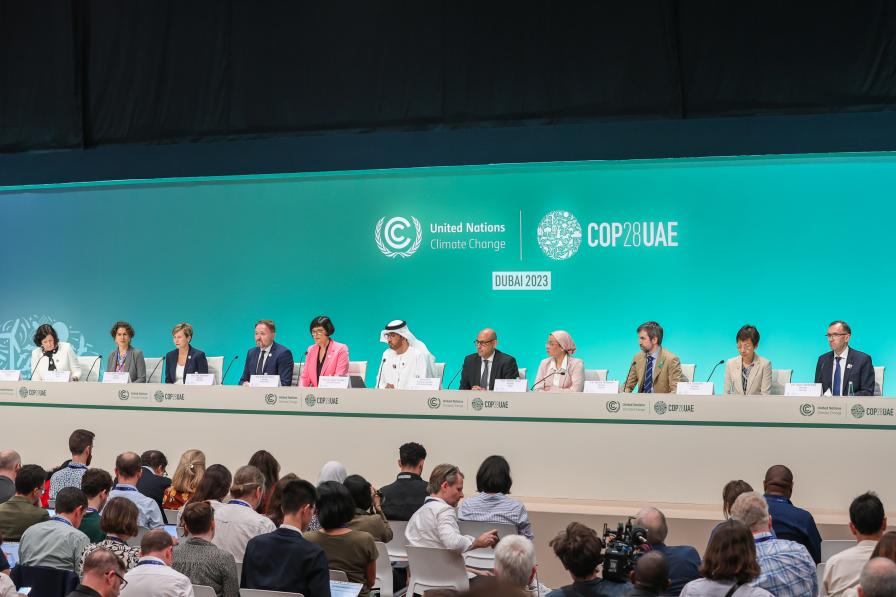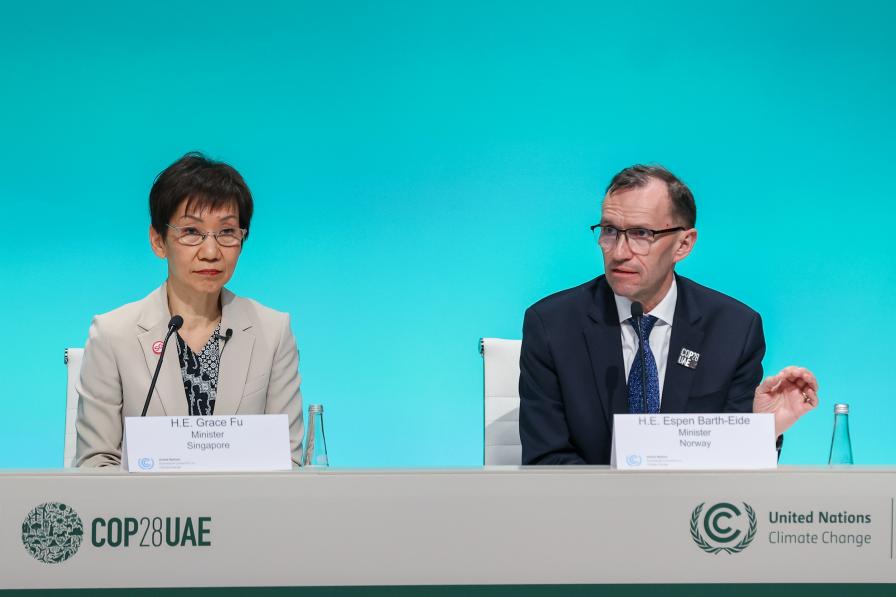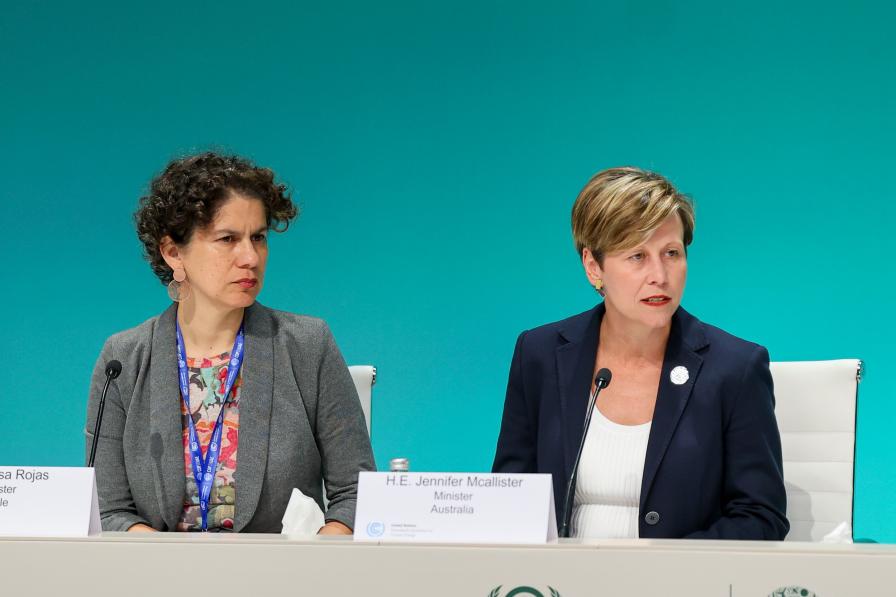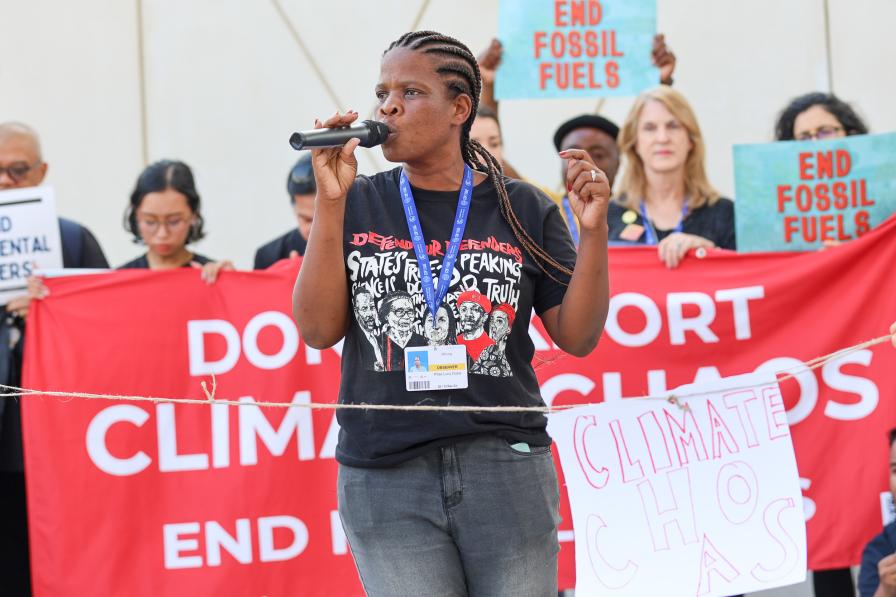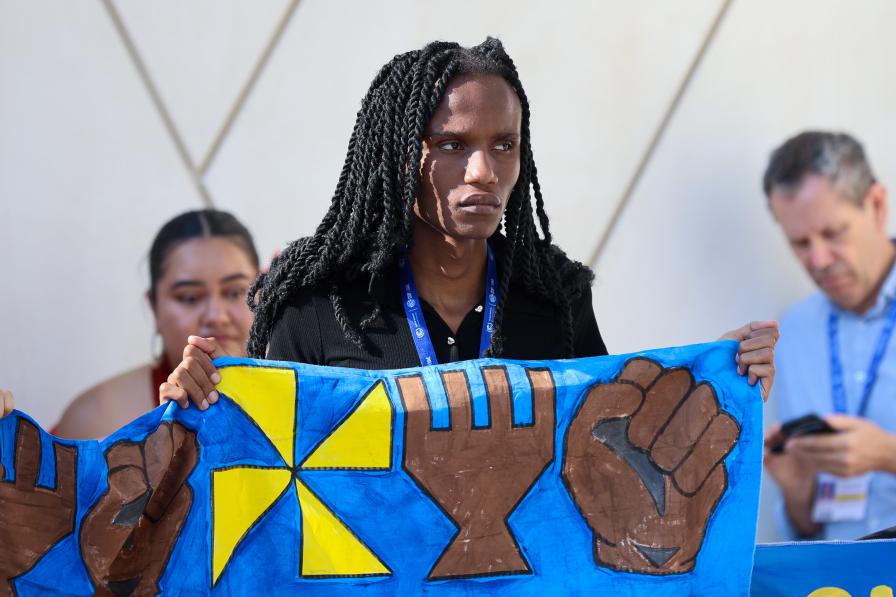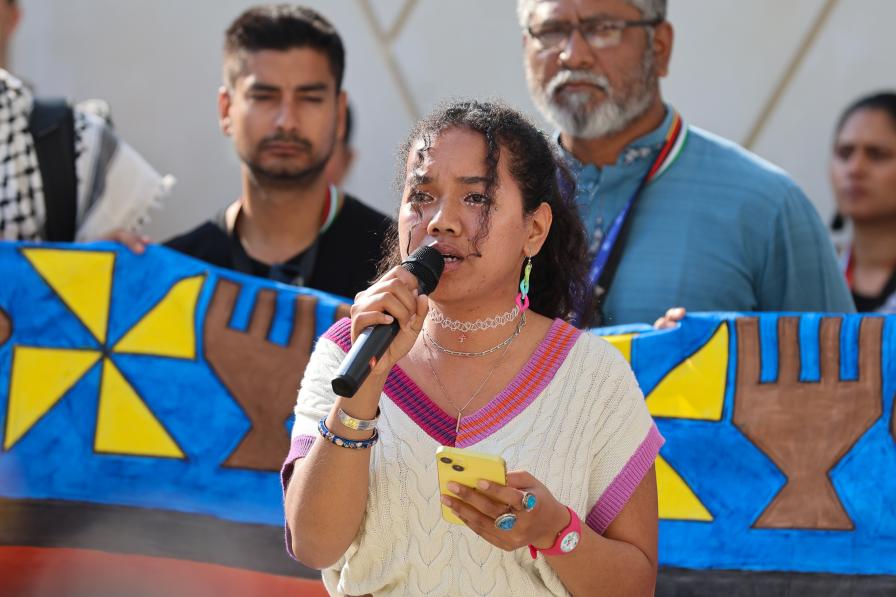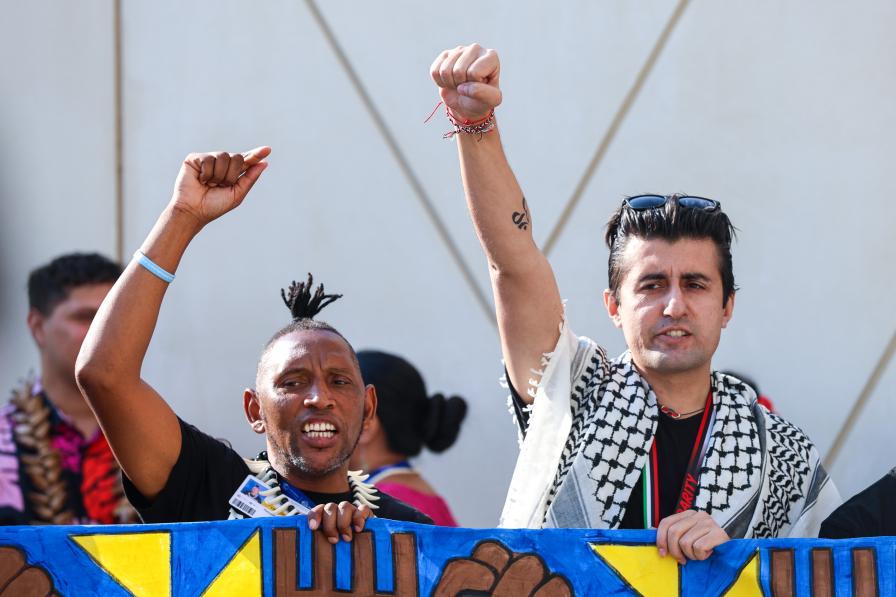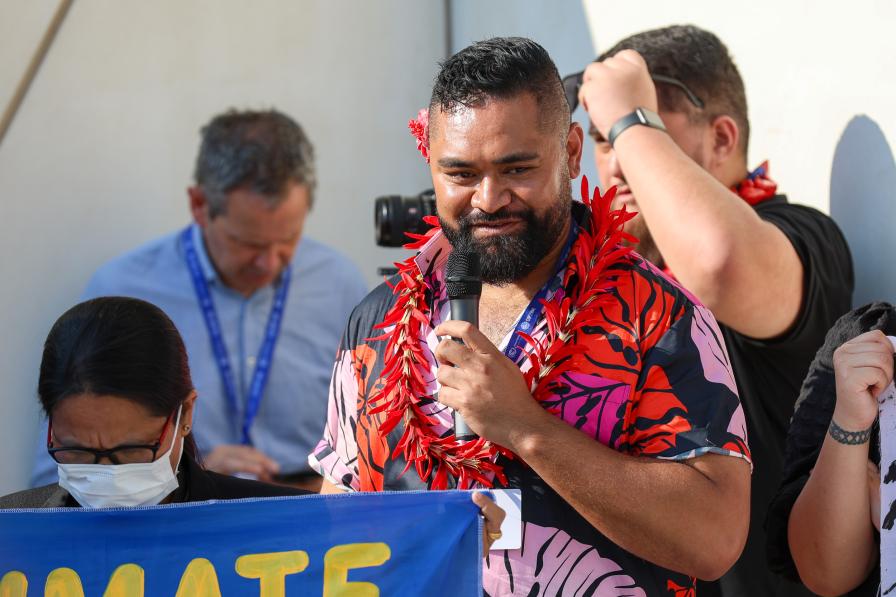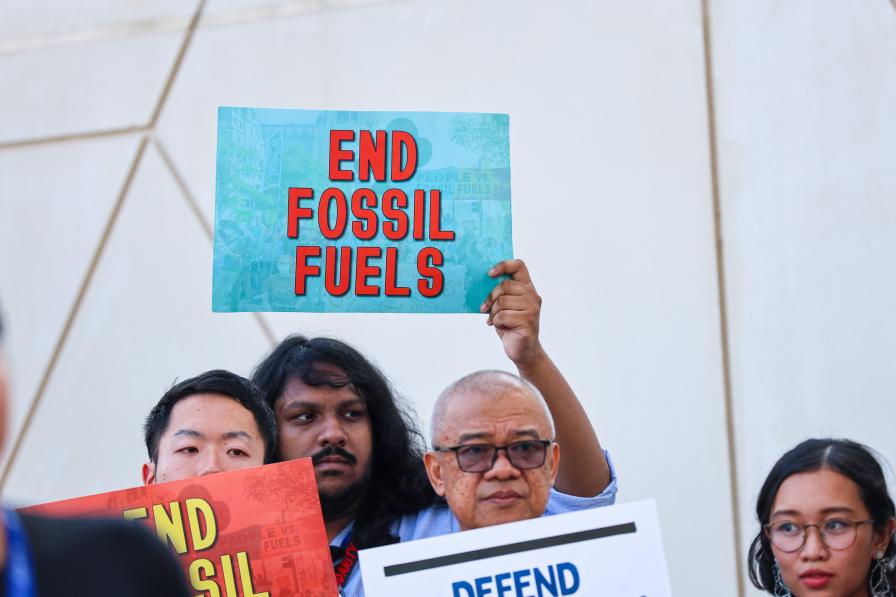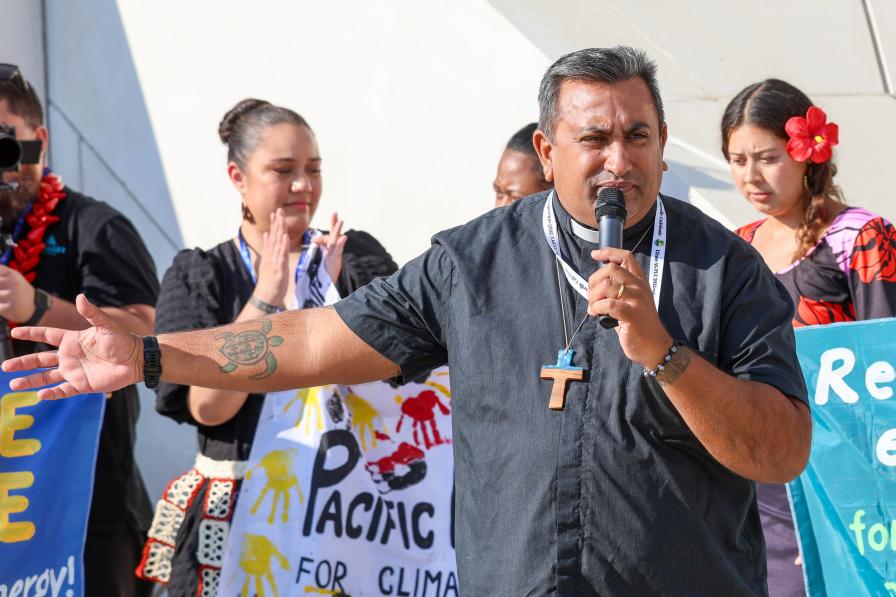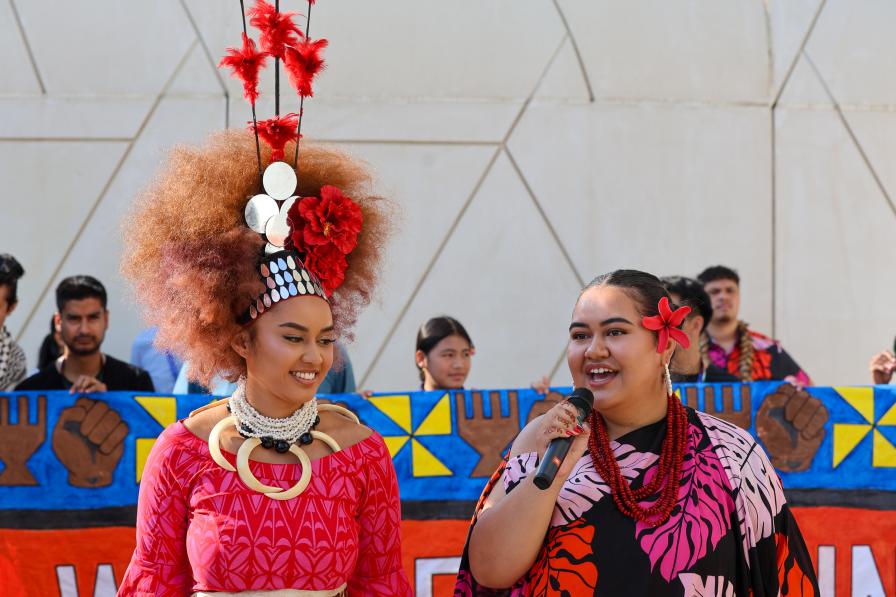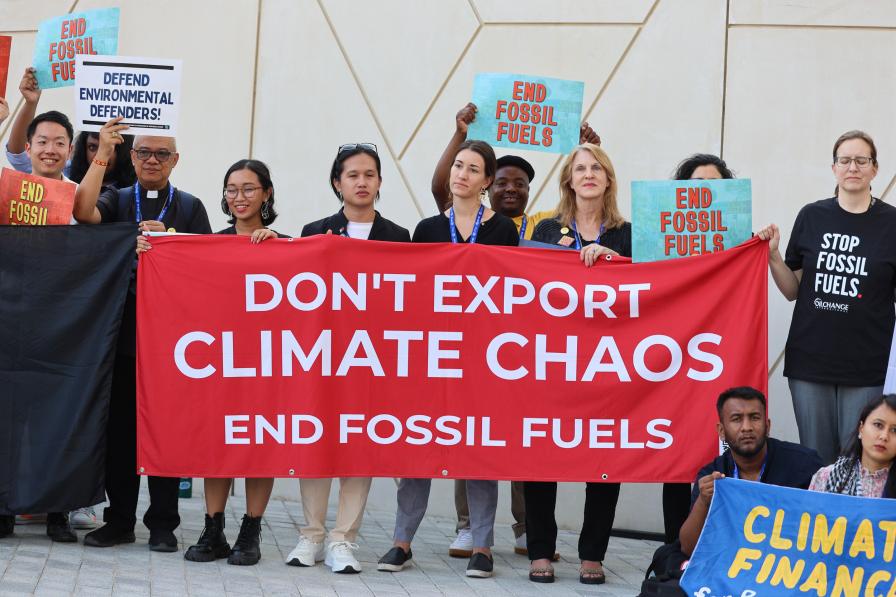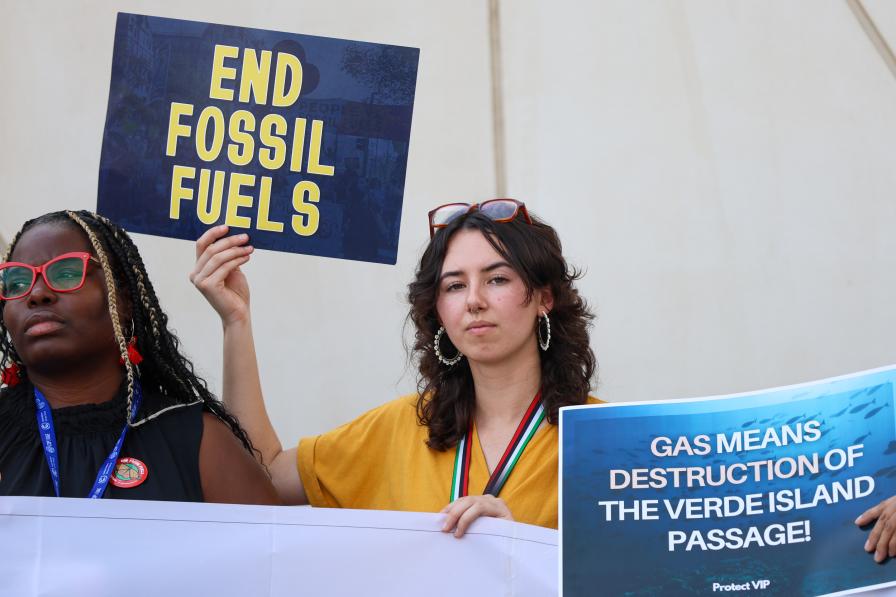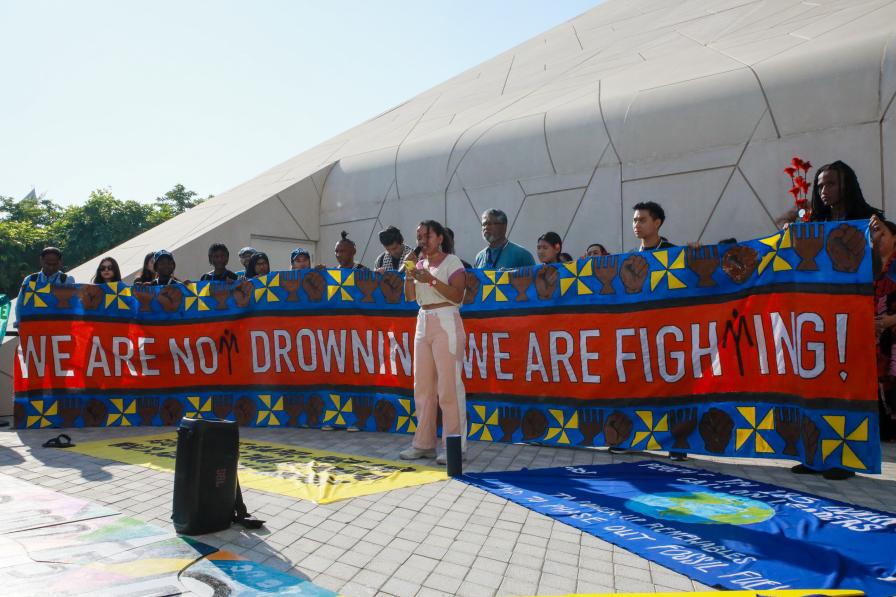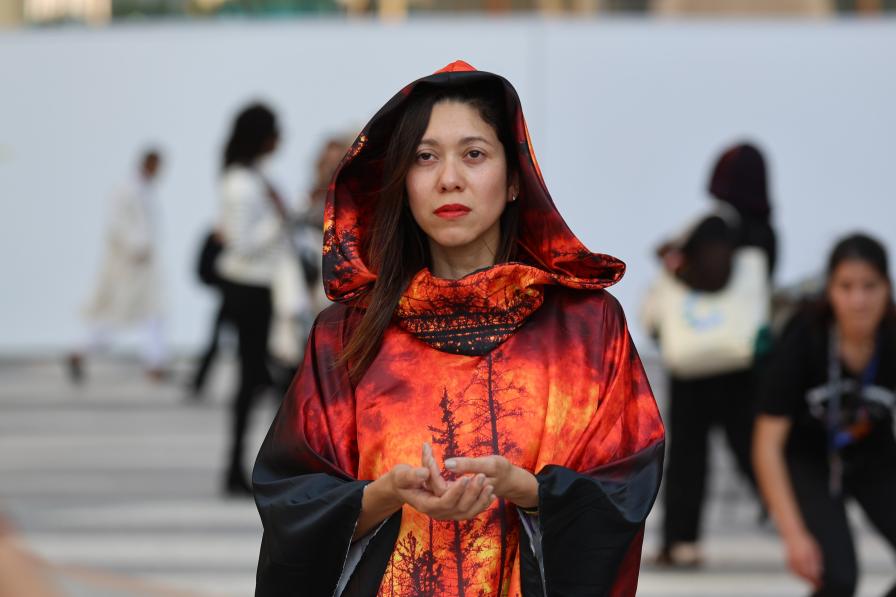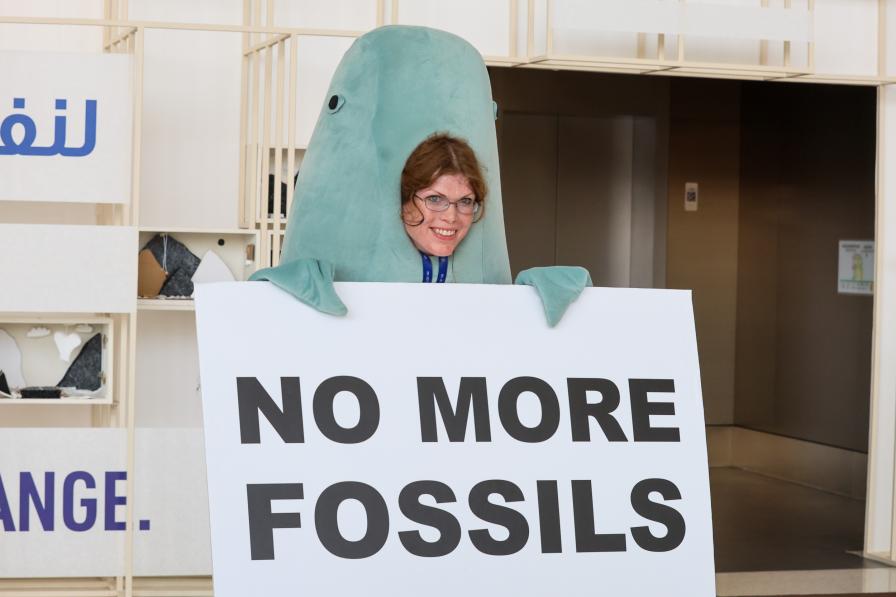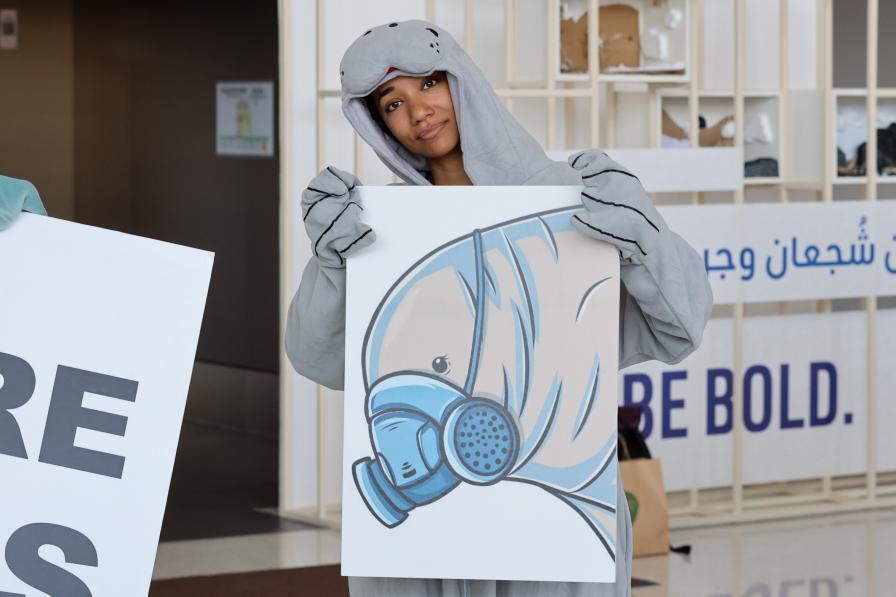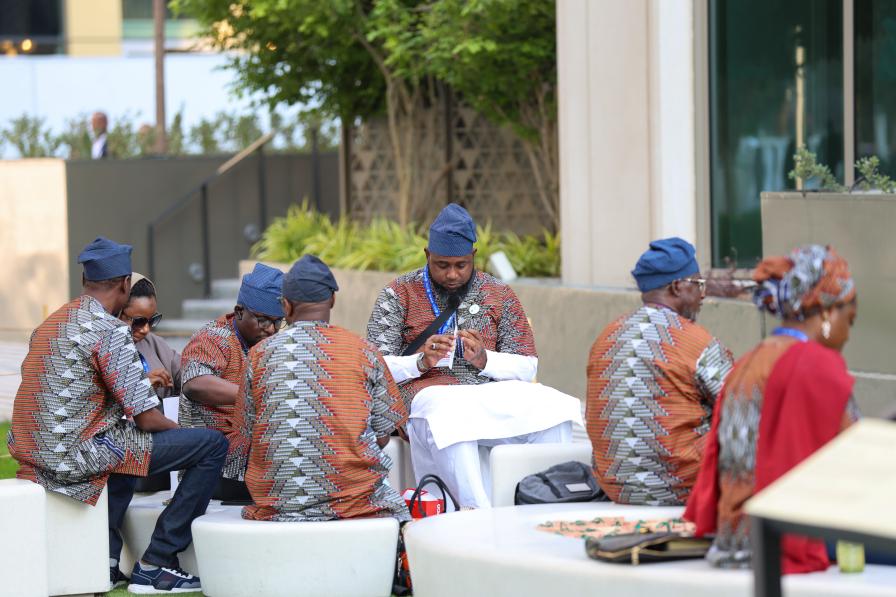After a week of technical-level negotiations, the political phase of the Dubai Climate Change Conference began. The Chairs of the Subsidiary Bodies provided an overview of progress to date and Sultan Al Jaber, President of the 28th session of the Conference of the Parties (COP 28) to the UN Framework Convention on Climate Change (UNFCCC), delineated the plan for moving forward.
President Al Jaber proposed that pairs of ministers would lead consultations on selected issues and senior negotiators would lead discussions on outstanding technical work, with reports on successful outcomes for all technical matters to be delivered on Saturday, 9 December by 3:00 pm.
Want to dig deeper into today's talks? Read the full Earth Negotiations Bulletin daily report.
Ministerial consultations are set to convene on:
- the Global Stocktake, co-facilitated by Barbara Creecy, Minister of Environment, Forestry, and Fisheries (South Africa), and Dan Jørgensen, Minister for Development and Global Climate Policy (Denmark);
- mitigation, co-facilitated by Grace Fu, Minister for Sustainability and the Environment (Singapore), and Espen Barth Eide, Minister of Foreign Affairs (Norway);
- adaptation, co-facilitated by Jennifer McAllister, Assistant Minister for Climate Change and Energy (Australia), and Maisa Rojas, Minister of the Environment (Chile); and
- finance, co-facilitated by Yasmine Fouad, Minister of the Environment (Egypt), and Steven Guilbeault, Minister of Environment and Climate Change (Canada).
President Al Jaber said that, following an informal stocktaking plenary on Saturday, 9 December, in the evening, a single group, to be called the “Majlis” (which means “council” in Arabic), would begin meeting on Sunday, 10 December. While this does not leave the co-facilitating ministers much time to advance political-level consultations, delegates were reassured to see many well-known, capable faces put in charge of these discussions and hoped they would still have a role to play in the Majlis.
Discussions related to cooperative approaches under Paris Agreement Article 6 proceeded as usual throughout the day. However, some parties threatened to halt progress on some market-related issues if equal attention is not paid to non-market approaches. Finance negotiators also had a long day. Even if not united on substance, they were at least of one mind in their desire to continue work at the technical level.
High-Level Ministerial Dialogue on the Provision of Ex-Ante Information on Climate Finance
In the afternoon, Steven Guilbeault and Yasmine Fouad co-moderated a long-planned ministerial dialogue aimed at discussing lessons learned in reporting on the anticipated provision of climate finance (Paris Agreement Article 9.5). These reports are a key instrument for enhancing predictability and have been submitted for the second time. The dialogue complements technical-level negotiations on the matter.
UNFCCC Executive Secretary Simon Stiell underscored that trust is essential for the process and needs to be rebuilt between developed and developing countries. Discussions on finance are key for this, especially after the goal to provide and mobilize USD 100 billion per year by 2020 was not met on time.
Participants heard reports from the Organisation for Economic Co-operation and Development (OECD) and Oxfam who each produced reports assessing the delivery of climate finance. In the absence of a common definition of climate finance, the reports differ in their methodology, especially with regard to the use of grant-equivalent figures.
Many developing countries called for a common definition of climate finance, underscoring that the varied information provided undermines transparency, predictability, and implementation. Several developed countries highlighted finance provided and efforts to increase predictability, with a few encouraging a wider group of countries to communicate under Article 9.5.
Events Related to Youth
Coined as “children and youth day,” the opening of the second conference week also saw a proliferation of youth-focused and youth-led events. Manal Nadeem, COP 28 UAE Youth Delegate, reported that the Global Youth Statement integrates inputs from children and youth from 150 countries and policy statements from Local and Regional conferences of Youth. The 2023 Statement contains 18 thematic areas presenting specific climate policy demands across the COP 28 agenda. Among other demands, the statement calls for parties to:
- offer debt cancellation for developing countries to enable sustainable and climate-resilient development, and disincentivize polluting activities, including providing equitable pathways to phase out fossil fuels; and
- use the best available science and traditional, Indigenous, and local knowledge to guide ambitious climate action.
To receive free coverage of global environmental events delivered to your inbox, subscribe to the ENB Update newsletter.
All ENB photos are free to use with attribution. For the UN Climate Change Conference - United Arab Emirates 2023 please use: Photo by IISD/ENB | Mike Muzurakis
COP 28 Plenary
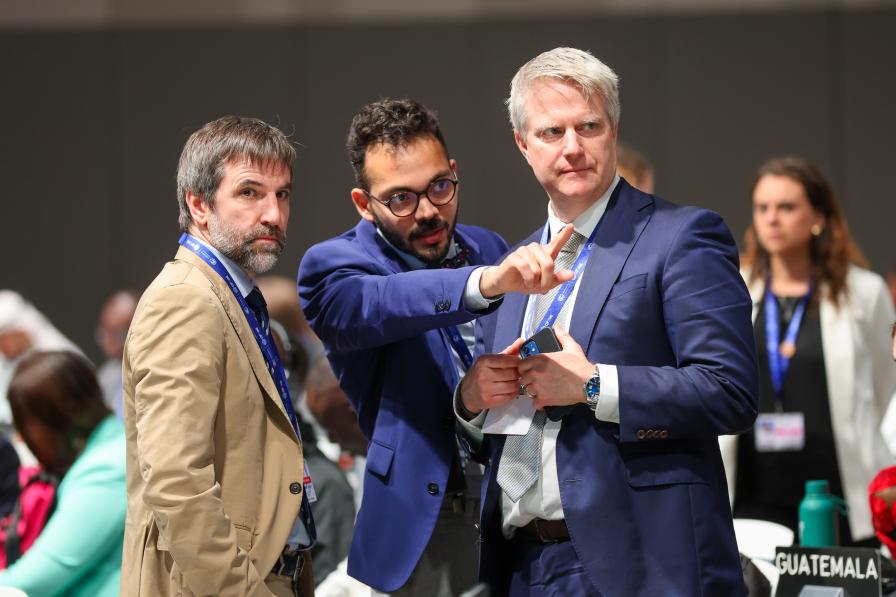
From L-R: Steven Guilbeault, Minister of Environment and Climate Change, Canada; Eduardo Luis Perez, Canada; and Michael Bonser, Canada

Adnan Amin, CEO, COP 28, and Sultan Al Jaber, COP 28 President and Minister of Industry and Advanced Technology, UAE, shaking hands
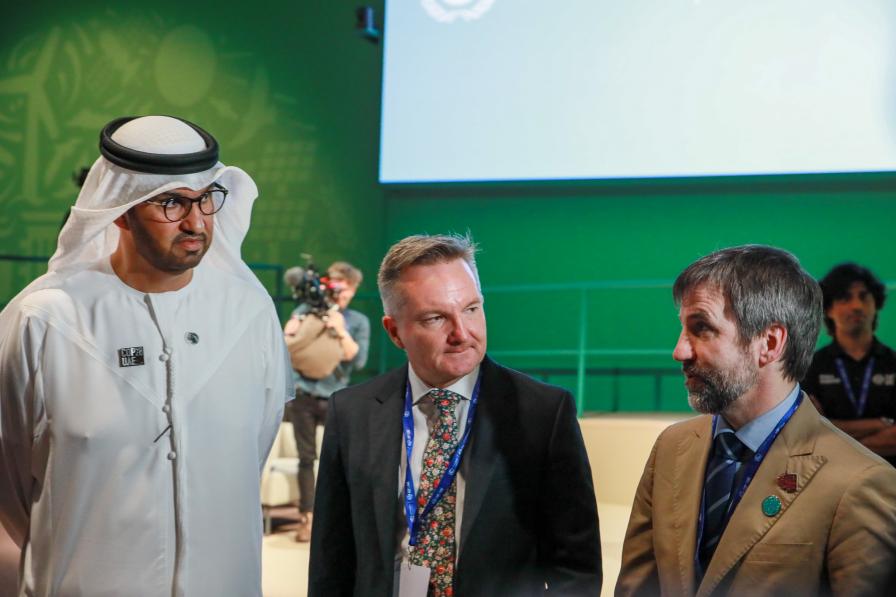
From L-R: Sultan Al Jaber, COP 28 President and Minister of Industry and Advanced Technology, UAE; Chris Bowen, Minister for Climate Change and Energy, Australia; and Steven Guilbeault, Minister of Environment and Climate Change, Canada
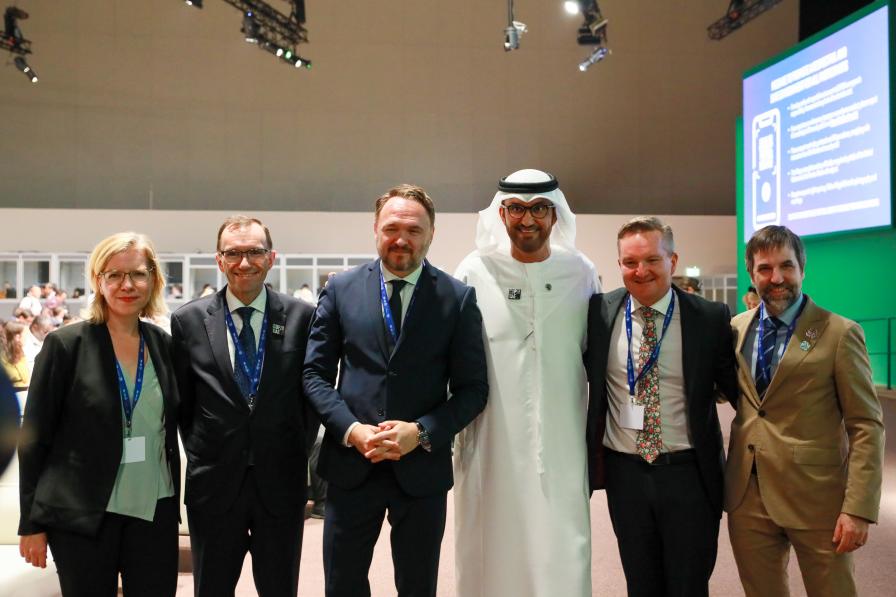
From L-R: Leonore Gewessler, Federal Minister for Climate Action, Environment, Energy, Mobility, Innovation and Technology, Austria; Espen Barth Eide, Minister of Foreign Affairs, Norway; Dan Jørgensen, Minister for Development and Global Climate Policy, Denmark; Sultan Al Jaber, COP 28 President and Minister of Industry and Advanced Technology, UAE; Chris Bowen, Minister for Climate Change and Energy, Australia; and Steven Guilbeault, Minister of Environment and Climate Change, Canada
Second Biennial High-level Ministerial Dialogue on Climate Finance
Ministerial Pairings Press Conference
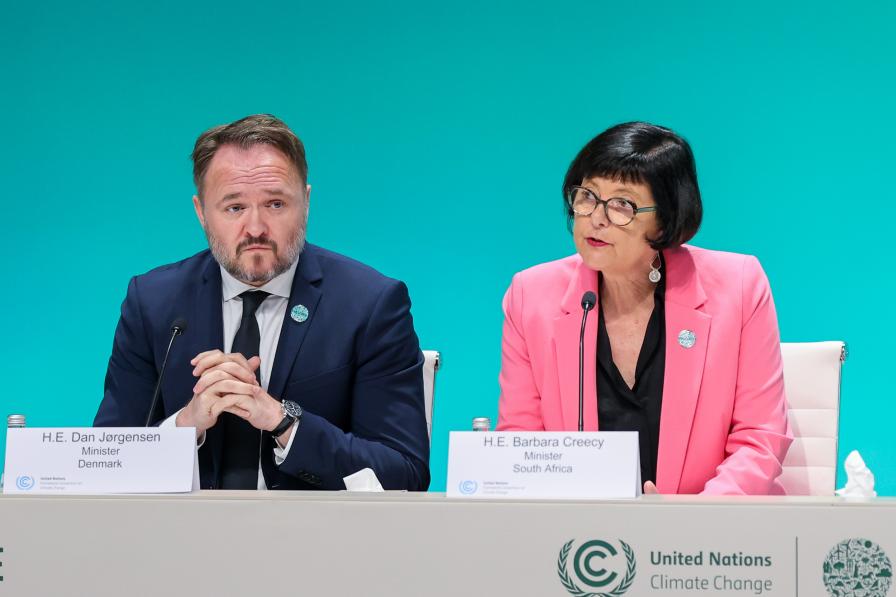
Dan Jørgensen, Minister for Development and Global Climate Policy, Denmark, and Barbara Creecy, Minister of Environment, Forestry, and Fisheries, South Africa
